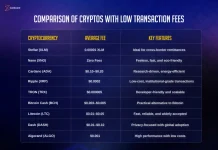The Rise of Online K-12 Programs: A New Era in Education
Education has evolved significantly over the past decade, with technology playing a major role in reshaping how students learn. One of the most notable advancements is the rise of online K-12 programs, which offer students a flexible and accessible alternative to traditional classroom learning.
Whether due to personal preference, unique learning needs, or external circumstances, many students and parents are now considering online education as a viable option. In this blog, we’ll explore what online K-12 programs are, their benefits, challenges, and how to choose the right one for your child.
What Are Online K-12 Programs?
Online K-12 programs provide full-time or part-time education for students in kindergarten through 12th grade through digital platforms. These programs follow a structured curriculum and use interactive online tools, virtual classrooms, and digital assignments to facilitate learning.
Students enrolled in an online K-12 program may attend live virtual classes, watch recorded lessons, complete assignments at their own pace, and interact with teachers and classmates through discussion boards and video calls. These programs are offered by public schools, private institutions, and independent online learning platforms.
Why Choose an Online K-12 Program?
There are several reasons why parents and students opt for online K-12 education:
1. Flexibility and Personalized Learning
Online programs allow students to learn at their own pace, providing flexibility for those who need more time to understand concepts or those who want to advance quickly. This is especially beneficial for students with unique learning styles or those involved in extracurricular activities like sports, music, or travel.
2. Access to a Wide Range of Courses
Unlike traditional schools, online K-12 programs often provide a broader selection of courses, including specialized subjects, advanced placement (AP) classes, and electives that might not be available in local schools.
3. Safe Learning Environment
For students who face bullying, social anxiety, or health concerns, online learning offers a safer and more comfortable learning environment. It also allows parents to have more control over their child’s education and daily routine.
4. Integration of Technology in Learning
Since online K-12 education relies on digital platforms, students develop essential tech skills that prepare them for future careers. They become proficient in using e-learning tools, digital collaboration, and virtual communication.
5. Ideal for Homeschooling Families
Online K-12 programs provide a structured curriculum and professional instruction for homeschooling families, ensuring students receive a well-rounded education while allowing parents to be actively involved in their child’s learning process.
Challenges of Online K-12 Learning
While online education offers many advantages, it also comes with challenges that families should consider:
1. Lack of Social Interaction
One of the biggest concerns with online learning is the reduced opportunity for in-person socialization. However, many programs offer virtual clubs, group projects, and local meetups to help students connect with their peers.
2. Need for Self-Discipline and Motivation
Online students must be self-motivated and disciplined to complete assignments and stay engaged in lessons. Parents play a crucial role in providing structure and encouragement.
3. Dependence on Technology and Internet Access
Reliable internet access and a suitable device (laptop, tablet, or desktop) are essential for online learning. Families must ensure they have the necessary resources to support a smooth learning experience.
4. Limited Hands-On Learning
Certain subjects, such as science experiments or physical education, may be more challenging to teach online. Some programs incorporate at-home activities, virtual simulations, or partnerships with local learning centers to address this issue.
How to Choose the Right Online K-12 Program
With the growing number of online education options, it’s important to choose a program that best fits your child’s needs. Here are some factors to consider:
1. Accreditation and Curriculum
Ensure that the program is accredited by a recognized education authority. A strong, well-rounded curriculum that aligns with national or state standards is crucial for a quality education.
2. Teaching Methods and Support
Check if the program offers live classes, recorded lessons, or a mix of both. Also, consider the level of teacher support, tutoring options, and availability of academic advisors.
3. Flexibility vs. Structured Schedule
Some programs follow a strict schedule with daily live sessions, while others offer self-paced learning. Choose a format that suits your child’s learning style and family routine.
4. Student Engagement and Extracurriculars
Look for programs that offer virtual clubs, interactive projects, and social opportunities to keep students engaged beyond academics.
5. Costs and Financial Aid
Some online K-12 programs are tuition-free (especially public charter schools), while private or specialized programs may require tuition fees. Explore financial aid or scholarship options if needed.
Top Online K-12 Programs
Many reputable institutions provide high-quality online K-12 education. Some popular options include:
- K12 (Stride Learning) – A widely recognized provider offering full-time, tuition-free online public schools in various states.
- Connections Academy – A tuition-free online school program that offers a structured curriculum with teacher-led instruction.
- Florida Virtual School (FLVS) – Provides flexible online courses for full-time and part-time students.
- Khan Academy – Offers free, self-paced educational resources for students of all ages.
- Outschool – A platform offering live, interactive classes on diverse subjects.
- The Keystone School – A private online school that provides flexible learning options for K-12 students.
Is Online K-12 Education Right for Your Child?
Choosing an online K-12 program depends on your child’s learning style, family situation, and educational goals. If your child thrives in a flexible, technology-driven environment and can manage self-directed learning, online education can be a great fit. However, for students who require in-person interaction and a traditional classroom structure, a hybrid or in-person school may be a better option.
Final Thoughts
The rise of online K-12 programs has transformed education, offering students more choices, flexibility, and access to quality learning experiences. As technology continues to advance, online education will likely become even more effective and widely accepted.
If you’re considering enrolling your child in an online K-12 program, research different options, weigh the benefits and challenges, and choose a program that aligns with your child’s needs. With the right support and structure, online learning can provide a successful and enriching educational journey.







